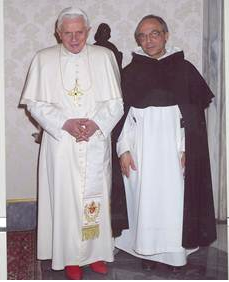 There was a man who carried a single candle into the darkness and the trackless depths of the desert.
There was a man who carried a single candle into the darkness and the trackless depths of the desert.
He needed no moon to guide his footsteps as he walked for he had long waited for this night, considered it, cherished it, anticipated it with a longing beyond telling. He had dreamt of this night since the day he had fashioned this candle with his own hands. He had longed for the lighting of this candle since he had first laid his eyes on the place he had chosen for it. Since the beginning he had held this night in his dreams, held this place before his eyes, held this candle in his hands.
As he made his way through the night and the sand, the stars watched and whispered to each other in fascination at what they saw below.
There had been many nights and the man had often been tempted to take the candle out on those nights. There had been many other places and the man had often longed to take the candle to those places. But those had not been the nights or the places for which he had so carefully, so lovingly crafted this candle and they would have been unworthy of the dream, of the longing, of the candle.
But in the fullness of time, this night had finally come and so too came the man with the candle, in full view of the astounded stars.
As he topped a small dune the man recognized the place from his dreams. He peered into the surrounding darkness and paused in anticipation of what he was about to do. He turned to the stars and winked conspiratorially at them. They blushed to have been so discovered, pulled the clouds over their heads and hid from sight.
The man knelt and dug out a small hollow in the sand and planted the candle there firmly.
“How dark it is here, Master” whispered the candle, his words trailing off into the immensity of the stillness.
“Yes, Little One” smiled the man. “It is the nature of a candle to be in the darkness, just as it is my nature to bring forth light in the desert. I have, therefore, sought this place, this night, for you. I intend to light you here, now, far from competing lights, far from lesser shadows. It is for this that I have fashioned you, for this I have sought your place, for this I have brought you here now, and it is for this that I offer to share with you fire”.
“Yes, Master” said the candle “Set me ablaze that I might fill this desert with light”.
“No, my Little One” said the man “You must not burn because you expect to bring light to this desert. I offer you the flame, not that the desert might have light, but that you might have life within you. If you do not embrace this flame first, if you do not hold it tightly to your chest before offering it to the desert, it will not take hold. It will sputter and flicker and be no more. No, I offer this flame to you as I, in turn, offer you to the desert, that you might be brought to life and this desert to completion.”
The stars peered furtively from behind the clouds to watch with wonder what the man was doing.
The candle considered the man’s words in the stillness and replied “Set me afire, Master, that I might burn even though I am only wax”.
“No, my Little One” whispered the man, you were fashioned to burn, not despite your wax, but from within it, through it, because of it. This flame shall be enkindled deep within you, in a place prepared for flame from the beginning. Yet without the offering of your wax, this flame will not be sustained. That part of you which you offer up will feed the flame within you but, in turn, you shall become soft, you shall melt into the crevices here, you shall slough from the intensity of the fire into such shapes that you do not recognize yourself by the light within you. As this flame burns its way into the desert from the inside out and as you are consumed you shall become more than you have ever been – until you are nothing but flame”
The stars watched and were amazed; they listened and were astonished.
The candle considered the darkness and said “Yes, Master. Set me ablaze that my light may shine on only beauty and goodness.”
“No, Little One” replied the man “You were not fashioned to burn conditionally. This fire may not be limited without being quenched. This fire is a hungry flame, it respects not shadow, it knows not restraint, it leaps where it will for it knows only passion and longing and consummation.“
“Labor of my hands, light of my longing, I have fashioned you to be set ablaze here in this time, in this place. You must burn without concern for results, you must burn without concern for limitations, you must burn without conditions. You must burn merely because it is the nature of a candle to burn, you must accept flame because I choose to share it with you.”
“You must burn because you are touched with fire.”
The stars held their breath and waited.
The candle said nothing for the time for words had passed unseen in the darkness; all that remained was the desert and the man.
The candle offered himself up to the flame.
The man leaned over, shielding the candle from the desert with his body and struck a match. As the flame leapt to the sky, he held the match to the wick and brought the candle to life.
And, oh, how the stars envied the blaze.
Peter Martin Baysdell, OP
 I ask you to accept the immense gratitude of the Order of Preachers for the great generosity and beautiful simplicity with which you have exercised your ministry, ‘a humble worker in the Lord’s vineyard’. The Brothers, Nuns, Apostolic Sisters, Lay Dominicans and the entire Dominican Family join me in assuring you of our communion in prayer and thanksgiving.
I ask you to accept the immense gratitude of the Order of Preachers for the great generosity and beautiful simplicity with which you have exercised your ministry, ‘a humble worker in the Lord’s vineyard’. The Brothers, Nuns, Apostolic Sisters, Lay Dominicans and the entire Dominican Family join me in assuring you of our communion in prayer and thanksgiving.


